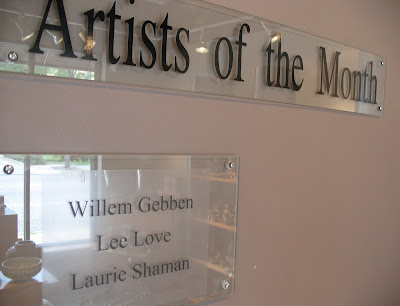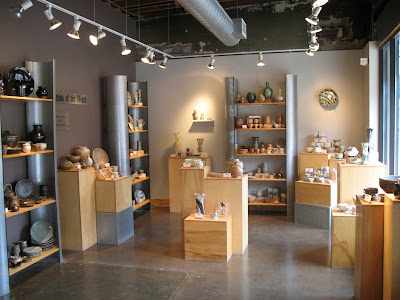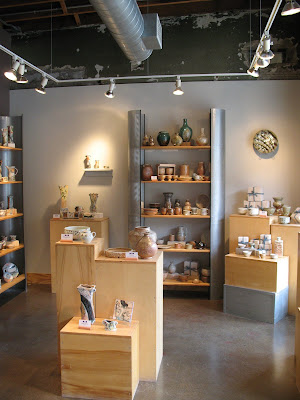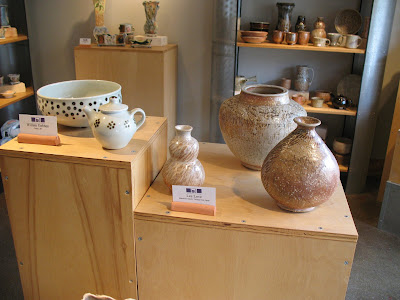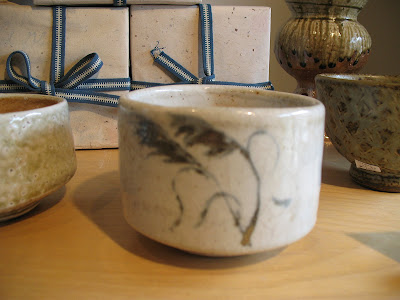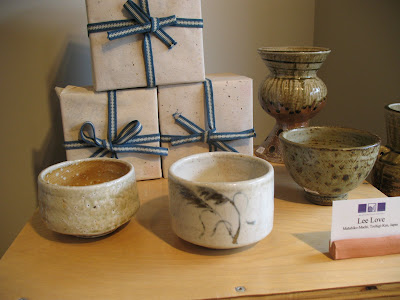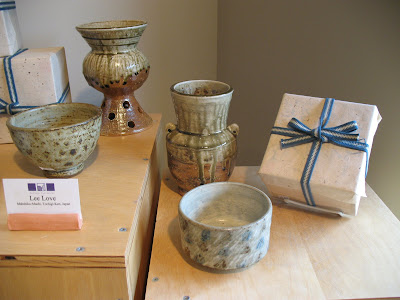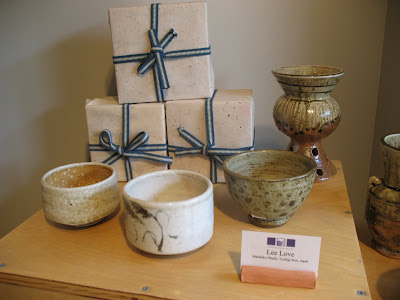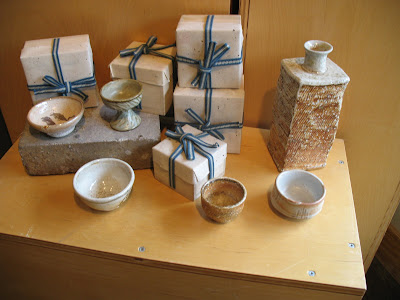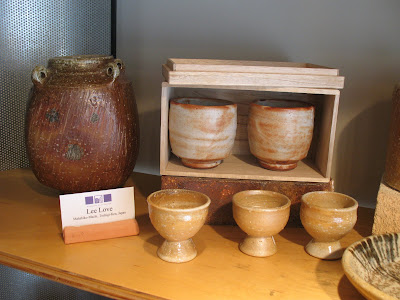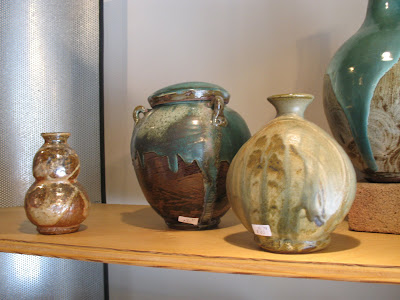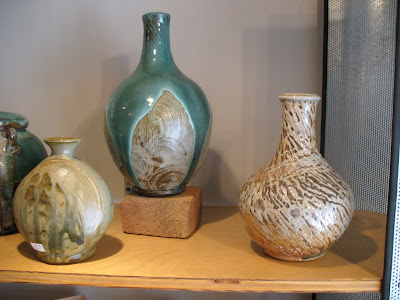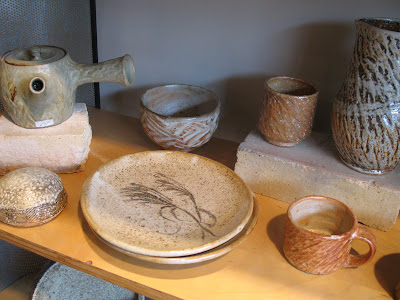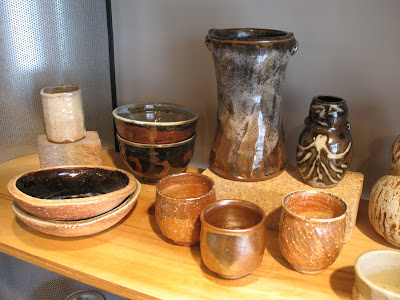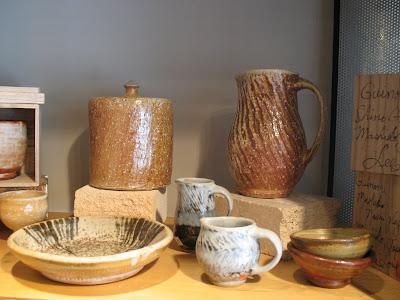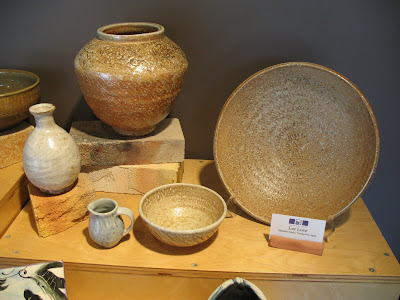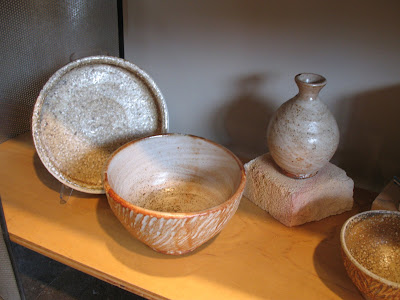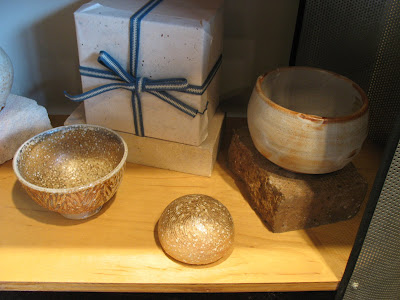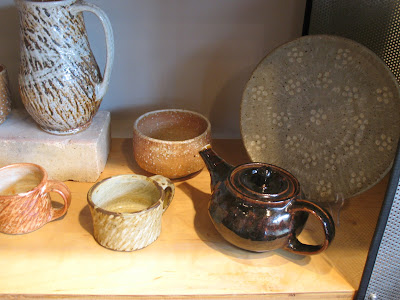Friday, July 27, 2007
Friday, July 13, 2007
Friday, July 6, 2007
"Beauty Goes Beyond Borders."
"Recognizing some kind of beauty goes beyond all borders," Kyoko Mimura said.
 |
| Kyoko Mimura |
She speaks from her own experience of dealing with borders and recognizing beauty beyond them. She gives credit to Soetsu Yanagi, born at the end of the 19th century, for ideas that she learned from his aesthetics, thoughts, and activities.
He was, she said, the initiator of not only the mingei, folk crafts, movement in Japan but also of the philosophy behind it. In the mid-1930s he founded the Japan Mingeikan, of which Mimura is now adviser for international programs.
She was born in Illinois and, as a child, was secure in her English until, she said, "my parents decided I should be more Japanese." Her family returned to live in Japan, where she and her brothers struggled to raise their grasp of their native language to meet high expectations. In her first employment, Mimura worked as a translator and simultaneous interpreter for the Ministry of Foreign Affairs.
With language her forte, Mimura entered Tokyo's Sophia University and received her first degree in 1987. "I majored in political science," she said. "Because of my mixed background and acknowledging the differences, I was very much interested in how to connect the world."
In Tokyo, she worked in the creative department of an international advertising company and as an art columnist for a newspaper. Married, she returned with her husband to America, where she studied for her master's degree. She chose to major in editorial journalism.
"After I received my graduate degree, I applied and was accepted for discussion shows at the Washington D.C., bureau of CNN," Mimura said. At the same time she was doing volunteer work for the Japan Mingeikan, and that became her path "back to culture."
Mimura assisted the Mingeikan tour of Scotland in 1991. As part of the Japan Festival, in Edinburgh she conducted small groups that introduced the arts and crafts of the Edo Period.
During successive tours, she included the small village of St. Ives, where the English potter Bernard Leach had his kiln.
The story of the friendship and collaboration between Soetsu Yanagi and Bernard Leach is well known. Yanagi was a Gakushuin student and acquired an interest in philosophy from his English teacher, the renowned Dr. Daisetz Suzuki.
Leach, born in 1887 in Hong Kong and two years younger than Yanagi, spent some childhood years in Kyoto.
The two met in Japan in 1909, at a time when Yanagi was discovering "the human spirit in physical material." Leach, beginning as an artist and teacher, decided to turn to pottery. Yanagi and Leach met the potter Shoji Hamada, whom Leach took to England with him. Leach set up his home and kiln on a hillside above the sea in St. Ives.
Mimura immersed herself in the history of the development of the mingei folk craft concept in Japan, and of the personalities concerned with it. She said, "Yanagi believed that mingei were works of art made by people for daily use. The beauty of mingei was that of natural liveliness."
She began working in the International Programs Department of Mingeikan in 1992, becoming director of the programs 10 years later. During this period she bore two sons, both of whom are now violinists.
Mimura writes articles that appear in journals, newspapers and museum catalogs. She is an accomplished lecturer, who keeps meticulous records of her contacts. She maintained her connection with Leach and his son David during their lifetimes. Her work and her memories have made her stay close to the coteries of the founders of the mingei movement.
Mimura agrees that production of pots, not as ornaments but for daily use, was "like a process of mediation." Pots did not require the signatures of the potters, while the "warmth of hand" in the potting came through as an aesthetic truth."
The movement applies to more than pots, Mimura claims. She sees music and textiles from Japan interesting people in other countries. "Showing traditional methods in innovative and useful ways, encouraging youth everywhere is exciting and urgent," she said. True to her precepts, Mimura is arranging a presentation at Mingeikan from this autumn on textiles from India.

